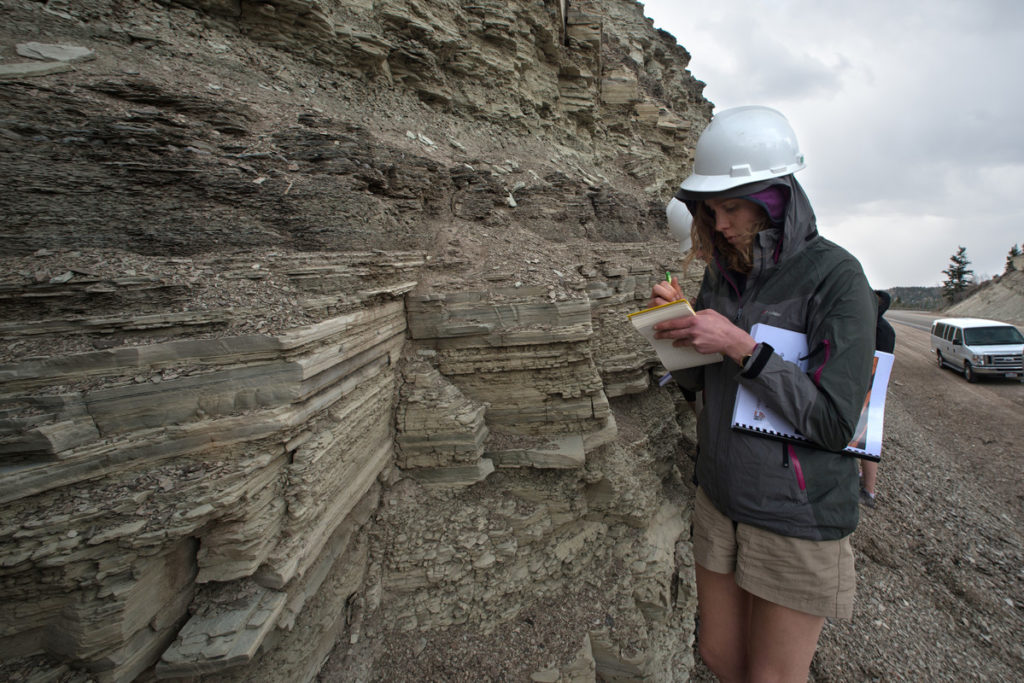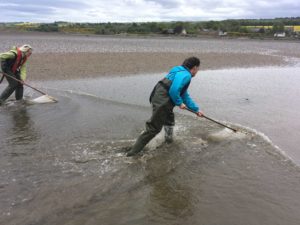Although many projects cut across more than one theme, QUADRAT research encompasses three broad and inter-connected themes: Biodiversity, Earth Systems and Environmental Management. These themes fall squarely within the NERC Science remit.
Biodiversity

This theme centres on understanding the ecological and evolutionary processes that shape the levels and distribution of biodiversity at different taxonomic and functional scales, and the consequences for ecosystem services, processes, function and resilience.
This understanding is fundamental for the effective management of natural capital, and is central to several of the main environmental and societal global grand challenges.
QUADRAT partner members have strengths in ecology and evolution, and an excellent track record of working in an applied context with a diverse community of end-users to influence policy and practice.
This includes research in identifying the intrinsic and extrinsic processes that shape demography and dynamics of natural populations, the genetic basis of phenotypic traits; quantifying the nature of species interactions, the architecture of food webs and the resilience of communities, quantifying the relationship between biodiversity and ecosystem processes and stability, modelling the effects of environmental change on species distribution and persistence; and the conservation of genetic resources.
This research provides a training platform for the latest advances in ‘omics-based technologies and approaches, for which QUADRAT researchers are at the forefront of development and use.
Both the University of Aberdeen and Queen’s University Belfast have invested strategically in genomics research and training infrastructure and bioinformatics support.
QUADRAT students also benefit from University of Aberdeen and Queen’s University Belfast’s position at the leading edge of quantitative ecology and evolution.
Projects which identify biodiversity or determine processes underpinning it. These may cover one or more of the following:
- Impacts of climate change
- Impacts of land/sea use
- Evolution and adaptation / Evolutionary ecology
- Life history evolution
- Parasite and disease ecology
- Behavioural ecology and evolution
- Community ecology: dynamics and resilience; species interactions
- Population ecology – demography and dynamics
- Systematics and taxonomy
- Population genetics and Molecular Ecology
- ‘omics of natural populations
- Microbial ecology
- Paleo- ecology
- Functional ecology and Ecophysiology
- Macroecology and Biogeography
- Urban ecology and biodiversity
Earth Systems
 This theme aims to understand the Earth’s surface and subsurface processes, researching causes, effects and consequences of interactions between the geosphere, hydrosphere and biosphere across a full range of environments, and encompassing processes on geological to human timescales. This is fundamental to ‘understanding how our planet works’ and for comprehending the past and current health of the Earth System.
This theme aims to understand the Earth’s surface and subsurface processes, researching causes, effects and consequences of interactions between the geosphere, hydrosphere and biosphere across a full range of environments, and encompassing processes on geological to human timescales. This is fundamental to ‘understanding how our planet works’ and for comprehending the past and current health of the Earth System.
Research here enables prediction of the likely impacts of future changes to natural and anthropogenic processes on Earth’s environments to help to inform environmental management plans.
With industry, government and UKRI support both University of Aberdeen and Queen’s University Belfast have recently invested in facilities for Earth System Process training and research.
QUADRAT students benefit from these recent investments in cutting-edge geoscience equipment – both in the field and when processing their collected samples in the well-equipped laboratories.
The Earth Systems and Biodiversity themes are not mutually exclusive and a major strength of QUADRAT partners is the capacity to straddle traditional discipline boundaries – especially around areas such as biological (palaeo)oceanography and the capacity for physical processes to influence biological structure and organisation, physical and biogeochemical processes in soils, global biogeochemical cycling, bioremediation of pollution contaminated ecosystems, effects of major environmental changes on ecosystems and urban site regeneration.
Projects which help understand the Earth’s surface and subsurface processes on geological to human timescales. These may cover one or more of the following:
- Climate
- Earth engineering
- Earth resources
- Geohazards
- Glacial and cryospheric systems
- Hydrogeology
- Hydrological processes
- Mantle and core processes
- Physics & chemistry of Earth materials
- Quaternary science
- Science-based archaeology
- Sediments and sedimentary processes
- Tectonic processes
- Volcanic processes
Environmental Management
 Environmental management is the core theme that QUADRAT research and training is structured around. Environmental management is central to many of the UN sustainable development goals and to the UK government’s Industrial Strategy.
Environmental management is the core theme that QUADRAT research and training is structured around. Environmental management is central to many of the UN sustainable development goals and to the UK government’s Industrial Strategy.
QUADRAT draws on our position as go-to research partners for a range of end-user and stake-holder groups. QUADRAT partners have been involved in providing the evidence base around a large range of environmental management challenges including sustainable fisheries management and production, land use, eradication of alien invasive species, rewilding, monitoring the epidemiology of soil and emerging infective disease, ecotourism impact, conflict management, effects of decommissioning, evaluation of ecosystem services, interplay with agriculture, food web and carbon dynamics.
Projects which have the potential to translate research into improved policy and resource management. These may cover one or more of the following:
- Adaptation and mitigation of climate change
- Evaluation of ecosystem services.
- Sustainable fisheries management
- Interactions between wildlife and agriculture.
- Environmental physiology
- Land/Sea use
- Restoration and Conservation ecology
- Nature based solutions
- Conservation genetics
- Rewilding
- Management/Eradication of alien invasive species
- Disease reductions strategies (zoonoses)
- Impacts of ecotourism.
- Ecotoxicology
- Bioremediation
- Food web and carbon dynamics.
- Environmental biotechnology





















































